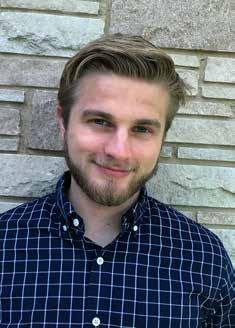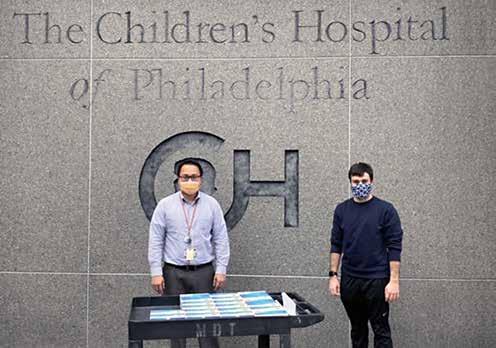
3 minute read
Schreyer for Women impacting communities
Mission
The mission of the Schreyer Honors College is to promote: • Achieving academic excellence with integrity • Building a global perspective, and • Creating opportunities for leadership and civic engagement
Advertisement
Vision
To educate people who will have an important and ethical influence in the world, affecting academic, professional, civic, social, and business outcomes. To improve educational practice and to continue to be recognized as a leading force in honors education nationwide.
History of the Schreyer Honors College
The Schreyer Honors College is a leading force in honors education. Under the leadership of director Paul Axt, Penn State launched the University Scholars Program in 1980. In September 1997, William and Joan Schreyer presented a $30 million gift, and the College was expanded and renamed in their honor. A gift of an additional $25 million in 2006 was part of the “For the Future: The Campaign for Penn State Students.” In the last four decades, more than 15,000 Penn State graduates have earned the distinction of being a Scholar.

The COVID-19 pandemic sent the world’s healthcare systems into overdrive and created numerous challenges at every level of society. Schreyer Scholars and Scholar alumni were among those who stepped up and stepped in to help those in need.
Brendan Bernicker, a 2019 philosophy and political science alumnus, and
TOP: Steven Budzinski raised more than $2,000 to help feed schoolchildren.
BOTTOM: Brendan Bernicker (right) and his team distributed more than 100,000 face masks around the country. Ezra Gershanok, a 2021 economics major, helped create a non-profit organization called the COVID Response Network, which raised funds to distribute masks across the country to those in need who may not have existing connections to a medical supplier.
Their masks went to homeless shelters in New York, state prisons in Alabama, a retirement home in Harrisburg, and several other places. The team reached and exceeded its goal of distributing 100,000 masks by June 1.
“If one of our masks prevents someone from spreading the disease or contract- ing the disease, the whole process was worth it,” said Gershanok.
Scholar Steven Budzinski, with the help of several other Penn State students and his younger sister, Cindy, an incoming first-year Scholar, created the Corona Caveman Challenge, a fundraiser designed to direct money that would have gone to regular grooming expenses to help feed schoolchildren. All of the proceeds went to Blessings in a Backpack, a national nonprofit organization that normally delivers meals to elementary schoolchildren in need on the weekends but, with schools closed due to the coronavirus pandemic, expanded those efforts throughout the week.
Schreyer for Women and Days for Girls — with assistance from Dean Peggy A. Johnson — organized an effort to sew cloth onto medical face masks to help them last longer. Scholar Ninad Mahajan participated in a food donation program in his neighborhood in Morrisville, help- ing to feed nearly 200 people per week through a local community center, and Scholar Amanda Grube started an informal community agriculture garden and a free library at her church while quarantined in her home in Manheim.
Scholars, as is often the case, were often inspired by one another.
“I think when you’re in a group of motivated people who also have a concern for their community at large, it’s infec- tious,” said Budzinski, who raised more than $2,000 through the challenge. “I think it motivates you to want to strive to be that as well. Being in a community of people that care, makes you care.”











